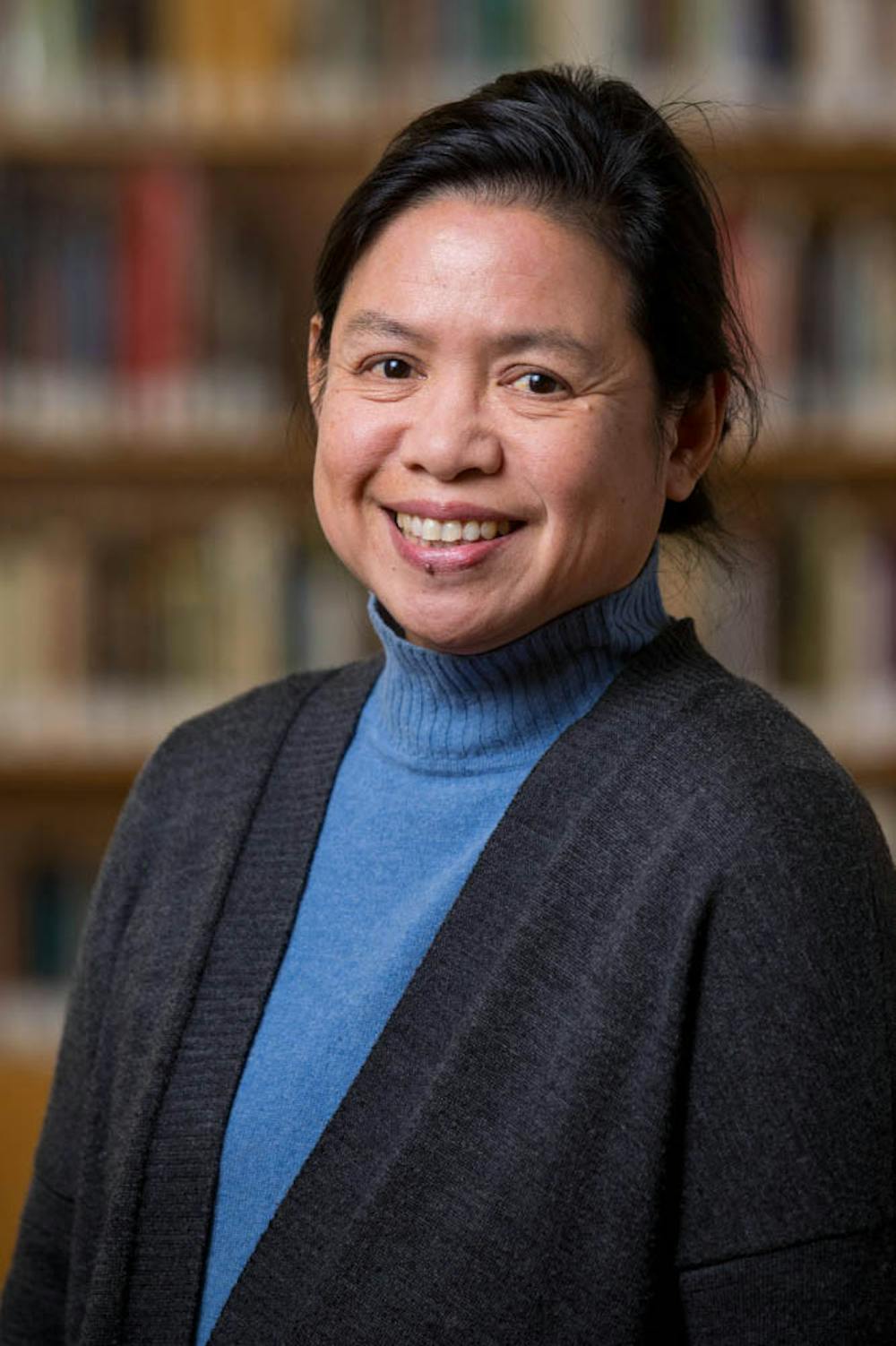Liza Cariaga-Lo, vice president for academic development, diversity and inclusion, will step down June 1 from her position in the Office of Institutional Diversity and Inclusion to assume a role in the Office of the Provost, wrote President Christina Paxson P’19 in a community-wide email Thursday.
Shontay Delalue, assistant provost for global engagement and director of the Mellon Mays Undergraduate Fellowship Program, will act as interim leader of the OIDI, Paxson wrote, adding that the search for Cariaga-Lo’s replacement will begin this summer. As Delalue steps into Cariaga-Lo’s position, the University will announce a new program director to support international students by May 1, Paxson wrote. A committee will stage a national search for Cariaga-Lo’s replacement, wrote Cass Cliatt, vice president of communications, in an email to The Herald. Both internal and external candidates could be considered, she added.
Cariaga-Lo was hired in 2013 as the associate provost for academic diversity and inclusion and became vice president in 2014. In her four and a half years at the University, Cariaga-Lo helped develop the University’s $165 million Diversity and Inclusion Action Plan, as well as the Presidential Diversity Postdoctoral Fellows Program and the National Diversity and Inclusion Summit.
Cariaga-Lo said that in June she will likewise step down as interim director of the Title IX Office, a role she assumed following the departure of former Title IX Program Officer Amanda Walsh in January. Russell Carey ’91 MA’06, executive vice president of planning and policy, is currently leading the search for a the office’s new director.
“There are some incredible candidates for that position,” Cariaga-Lo said. “I certainly do hope that they will be able to appoint someone in the not too distant future.” Neither Delalue or Marisa Quinn, the provost’s chief of staff, said who would lead the Title IX office between June 1 and the proposed July hiring of a new director.
Delalue and the OIDI are in conversation about what her role will entail, Delalue said. She aims to ensure the University does not “lose any momentum as it pertains to work … in diversity and inclusion.”
“I really think that Liza continuing to serve in a strong part-time role will be central to ensuring continuity, both in the interim and when her successor has been named,” Quinn said.
“We thought carefully about how we would manage things in my portfolio to make sure … all constituents on campus feel supported,” Delalue said. She will continue work on some of her previous projects, including the Mellon Mays fellowship, but most of her work in global engagement will give way to the incoming program director for international students, she added.
“I have been in higher ed for almost two decades and have always worked in … diversity and international affairs,” Delalue said, adding that she was a first-generation, low-income African-American college student. “Just a combination of my personal and professional experiences really primed me for this particular role.” Delalue was made assistant provost for global engagement in October 2016 after serving as director of the Office for International Student and Scholar Services.
“I have every confidence … in Shontay Delalue and in her ability to … lead the efforts in the interim as they search for a new vice president,” Cariaga-Lo said. “The office will continue … to step into the work intentionally and thoughtfully.”
After June 1, Cariaga-Lo will continue teaching in the education department, work two days a week in the Office of the Provost for the next year and continue developing a book and complementary initiative to address access to education in South East Asia, Paxson wrote.
After she steps down as vice president, Cariaga-Lo would like to contribute to work around diversity and inclusion in a broader way, she said. “I have, for many years, been interested in and peripherally involved in access and equity issues … not just within the U.S., but in a larger way.”
She will continue to assist academic departments as they implement the goals of the DIAP, which include expanding professional development for faculty members, creating academic pipelines and conducting qualitative campus surveys, Quinn said.
“It is always challenging to try to do everything that you want to do to meet the demands that are out there … increasingly more so as people become ever-more attuned to and aware of what’s at stake around diversity and inclusion,” Cariaga-Lo said.
Delalue looks forward to building collaborative and “respected relationships with students, staff (members), faculty (members) and constituents” in her new role, she wrote in a follow-up email to The Herald.





